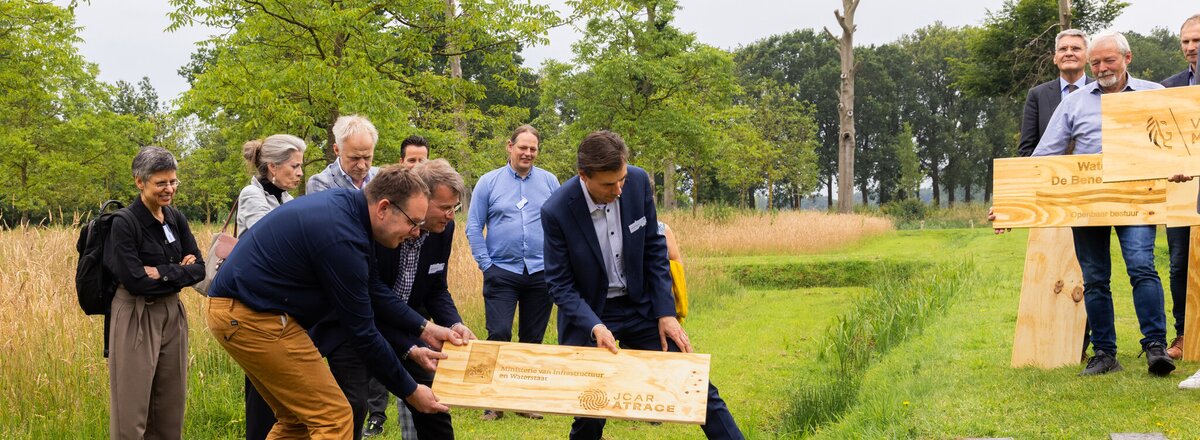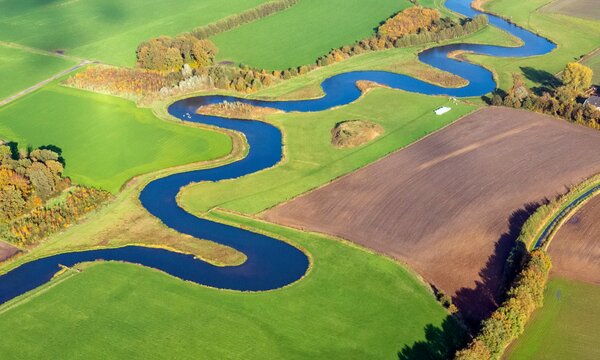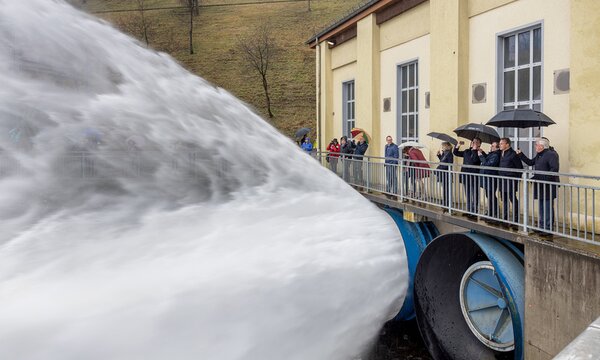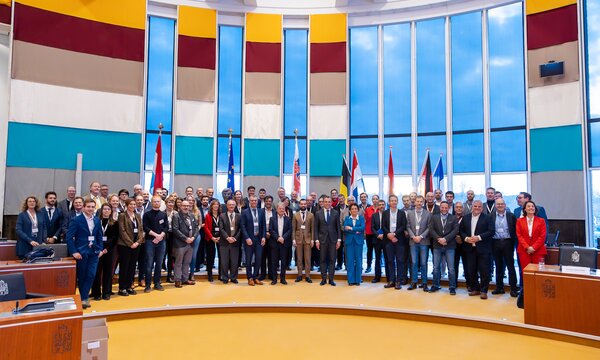At the PhD kick-off in 2024, we welcomed 5 of our 8 PhD researchers who will carry out long-term research in the in the scope of the knowledge agenda of our programme. The other group of 4 PhD researchers is expected to start in 2025.
This insight presents an overview of the joint research will be carried out among the partner institutions. Do you want to know more about our long-term research after reading the overview? Contact Prof.dr.Jaap Kwadijk, Chair of the Scientific Programme Council of JCAR ATRACE here.
The joint research will be carried out among the partner institutions, focusing on the following topics:
Assessing trade-offs between early action and long-term flood adaptation under climate- and socio-economic change | Led by: VU Amsterdam
This research will assess trade-offs between forecast-based action measures and long-term flood adaptation under increasing risk from climate-and socio-economic change. The researcher will address present and future uncertainty in early warning systems and assess how this influences the effectiveness of early action. To quantify this the researcher will create a detailed modeling framework to evaluate long-term and forecast-based adaptation strategies in response to increasing flood risk and uncertainty. Additionally, the researcher will assess the socio-economic and behavioral factors that influence early actions and evaluate various policy scenarios that combine long-term and forecast-based measures.
Using experimental catchment data and machine learning to benchmark hydrological models for hydrological extremes | Led by: LIST
During extreme weather conditions like floods and droughts, water movement can be controlled by processes that are hard to see during normal flow. Using over 20 years of data from a network of experimental catchments, along with existing knowledge, the researcher will test hydrological models and study water movement during extreme events across different types of geologies. By applying machine learning techniques, the researcher will identify the weaknesses in traditional models to simulate these events. The goal is to improve hydrological models, providing better tools for understanding extreme events and contributing to stronger risk management strategies.
Reservoir operation under a changing future | Led by: RWTH Aachen
This research, in collaboration with Wasserverband Eifel-Rur, will be developing adaptive and resilient operating rules for dam management in the Eifel region. The research focuses on understanding the role of Eifel reservoirs in managing floods and droughts within the Meuse catchment compared to reservoirs in Belgium and France. It aims to explore whether current operating rules can be enhanced to a demand-driven system that boosts dam resilience, ultimately improving flood protection and drought management. Additionally, the study seeks to identify the key requirements for sustainable, climate-adaptive river regulation and the long-term multidisciplinary impacts that need to be taken into account.
Impacts of hydrological hazards in the business sector | Led by: University of Liege
The research aims to produce several key outcomes for selected regional catchments, including the development of a questionnaire to survey businesses on flood-related losses and recovery processes. It will create a structured database of the collected data, enhance understanding of flood loss components and damage mechanisms in the business sector, and provide detailed insights into loss drivers, recovery, and adaptation to hydrological hazards. Additionally, a new flood loss model specific to the business sector will be calibrated for transboundary application, and the research will explore the impact of hydrological risks, including the effects of compounded challenges like drought and pandemics.
How collaboration contributes to improved flood and drought risk management in transboundary regional river basins | Led by: UTwente
The research will explore how various collaboration mechanisms can improve flood and drought risk management in transboundary river basins. The study aims to identify effective strategies and conditions for enhanced water management while promoting collaboration between researchers and stakeholders. Key questions include the impact of different collaboration mechanisms on managing flood and drought risks and how JCAR ATRACE researchers and stakeholders can effectively implement these mechanisms in designated river basins.
Stress testing of Dutch-Flemish regional river basins | Led by: KU Leuven
The research will focus on investigating how different collaboration mechanisms can enhance flood and drought risk management in transboundary river basins. The objective is to identify effective strategies and conditions for improved water management while promoting collaboration among researchers and stakeholders. The key questions addressed in the study include the effectiveness of various collaboration mechanisms and their application by JCAR ATRACE researchers and stakeholders in selected river basins.
Towards better monitoring and modelling approaches to assess the impacts of floods on infrastructure | Led by TU Delft
The project consists of three parts aimed at improving the understanding and forecasting of hydraulic and hydrological parameters in the Benelux and Germany river basins.
Part 1 focuses on monitoring by installing instruments to measure key factors such as precipitation, evaporation, soil moisture, groundwater levels, surface velocities, and discharges.
Part 2 involves developing specific models based on the data collected in Part 1 and existing literature to enhance forecasting of extreme flows and conducting hydraulic simulations of flow behavior at critical structures, particularly regarding debris formation and breakage.
Finally, Part 3 aims to implement the findings from the previous parts to enhance knowledge of river basin responses to extreme weather events, thereby improving flood prediction models and early-warning systems.
Understanding and preparing for High-Impact and Low-Probability flood events | Led by: GFZ Helmholtz Centre Potsdam
This research will focus on developing methodologies to understand and prepare for High-Impact/Low-Probability (HILP) flood events, which are increasingly influenced by climate change and societal complexities. The project aims to create plausible scenarios for HILP events, evaluate their effects on flood defenses and critical infrastructure, and design risk reduction strategies in collaboration with stakeholders. The main questions addressed include identifying plausible HILP events in the context of a changing climate and determining effective measures to mitigate their disastrous consequences.



